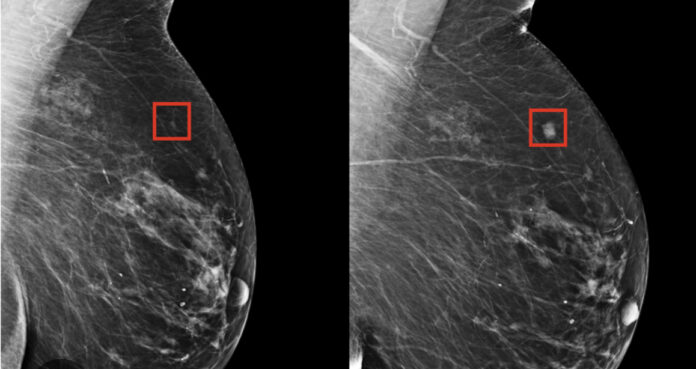Nearly 700,000 women across the country will take part in a world-leading trial to test how AI tools can be used to catch breast cancer cases earlier.
30 testing sites across the country will be enhanced with the latest digital AI technologies, ready to invite women already booked in for routine screenings on the NHS to take part. The technology will assist radiologists, screening patients to identify changes in breast tissue that show possible signs of cancer and referred for further investigations if required.
Currently two specialists are needed per mammogram screening. This technology enables just one to complete the same mammogram screening process safely and efficiently.
If the trial is successful, it could free up hundreds of radiologists and other specialists across the country to see more patients, tackle rising cancer rates, save more lives and cut waiting lists.
Breast cancer is the most common type of cancer in women, with around 55,000 people being diagnosed with the disease every year. Currently, women between the ages of 50 and 71 are invited to be screened every three years to help detect cases. This equates to around 2.1 million breast cancer screens carried out by the programme annually, helping to prevent around 1,300 deaths.
Secretary of State for Health and Social Care, Wes Streeting said:
“As a cancer survivor, I feel like one of the lucky ones.
With record numbers of people diagnosed with cancer, and Lord Darzi finding that cancer survival is worse in this country than our peers, I know that urgent action is needed to save lives and improve patient care.
That’s why for World Cancer Day, I am committed to publishing a dedicated National Cancer Plan this year, to unleash Britain’s potential as a world-leader in saving lives from this deadly disease and make the NHS fit for the future through our Plan for Change.”
Professor Lucy Chappell, Chief Scientific Adviser at the Department of Health and Social Care (DHSC) and Chief Executive Officer of the NIHR said:
“This landmark trial could lead to a significant step forward in the early detection of breast cancer, offering women faster, more accurate diagnoses when it matters most.
It is another example of how NIHR research, shaped and funded by the public, is crucial for rigorously testing world-leading new technologies, such as AI, that can potentially save lives while reducing the burden on the NHS.”






